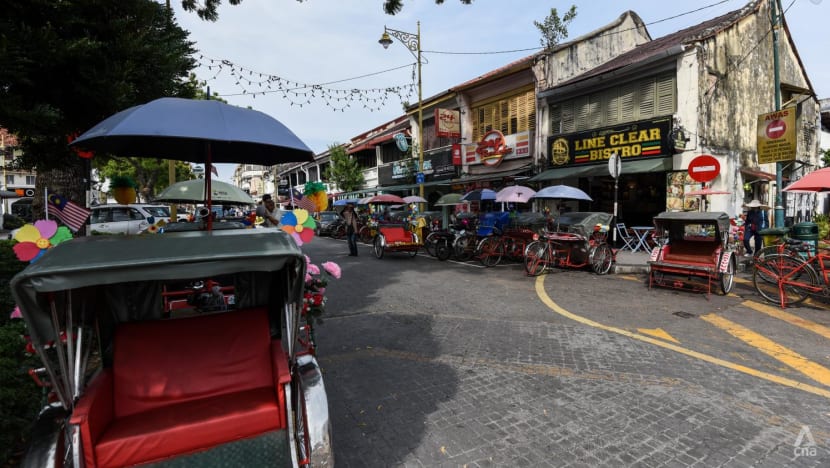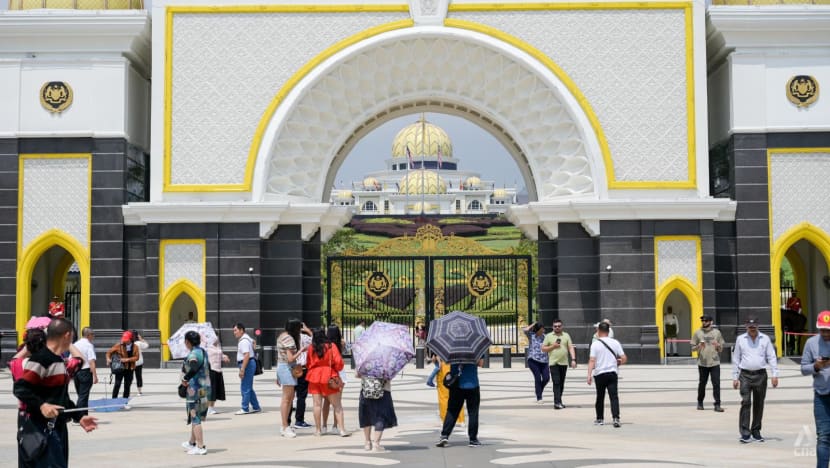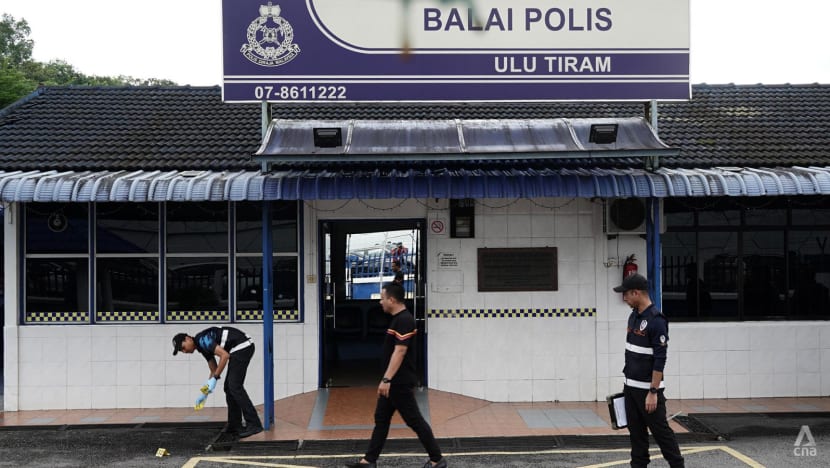Heightened security as man tries to snatch Penang police officer’s gun, days after fatal Ulu Tiram attack
The deadly assault at a police station in Malaysia's Johor on May 17 could have prompted others dissatisfied with society to turn to violent crime against authorities, say analysts.


This audio is generated by an AI tool.
KUALA LUMPUR: A 35-year-old man was arrested after trying to snatch a firearm at a police station in Penang in the early hours of Sunday (May 19), as Malaysian authorities step up security at key locations across the country, following a recent spate of violent threats to domestic security.
The latest incident comes after two men were caught trying to enter Istana Negara - the Malaysian king’s official residence - with a machete last Friday, the same day a pre-dawn attack on the Ulu Tiram police station in Johor left two officers dead.
The 21-year-old suspect in the Johor attack snatched a police pistol and used it to kill one officer before he was shot dead, prompting authorities to beef up surveillance at police stations, palaces and homes of chief ministers nationwide.
Investigators initially linked the attack to the terrorist group Jemaah Islamiyah (JI) but later clarified that the suspect acted alone and was not part of the group.
An analyst told CNA that while the three incidents might not be linked, the Johor incident could have psychologically enabled others to vent their frustrations about domestic issues, like rising costs of living, in a similar way.
“They are likely to be psychologically related, in a sense that they (involve) a portion of dissatisfied groups within society feeling discontented with authorities,” said Professor Ahmad Fauzi Abdul Hamid, who studies extremism at Universiti Sains Malaysia.
“And when you speak of authority, the police and the security forces are I think one of the favourite destinations for people to vent their anger.”
PENANG SUSPECT CURSED AT COPS
In Penang, the suspect tried to seize an MP5 submachine gun from a cop on sentry duty at Dato Keramat police station, in the popular tourist destination of George Town, Penang police chief Hamzah Ahmad said in a statement, issued on May 19.
The local man had approached the police station gate at about 4am on Sunday “under the influence of alcohol”, asking the police officer on duty to open the gate while shouting obscenities, Mr Hamzah said.
While officers warned the man to leave the station, he instead approached the officer and tried to seize his firearm but failed. The man then used a helmet to attack the officer. A scuffle broke out and he was eventually apprehended. Early tests of his urine samples showed he was not on drugs.
The man, who has four records of criminal and drug offences, is being investigated for using criminal force to deter a public servant from discharging his duty, criminal intimidation, and disorderly conduct in a police station.

In the Istana Negara case, police said two men aged 29 and 37 tried to enter the palace compound via the Jalan Sultan Abdul Halim gate at around 4.40pm on Friday, claiming that they wanted to meet the king Sultan Ibrahim Sultan Iskandar, New Straits Times reported.
But officers found a machete in their car and arrested them, the report said, adding that the men are being investigated for criminal trespass and possession of an offensive weapon.
Prof Ahmad Fauzi said the incidents reflected society’s discontentment with the country’s economic affairs and possibly a perceived threat against Islam, although he stressed that actual motives should be left to investigation.
These disgruntled individuals could also be targeting the police as authority figures who interact the most with the public, and taking advantage of lax security measures at police stations amid relative peace in the country, he said.
“Although the chances of success (in these incidents) are very slim, the suspects get what they want - probably fame, publicity and later even chances to get interviewed by the media,” he added.
SOCIETY ON EDGE
Dr Haezreena Begum Abdul Hamid, a criminologist and deputy dean of Universiti Malaya’s law faculty, said the spate of incidents keeps people on edge in terms of what might happen next.
“This is definitely not a healthy emotional state we are in neither does this give us a reprieve from the horrific incident at Ulu Tiram police station or the time to mourn over the incident,” she wrote in a commentary published by local media on Monday.
Dr Haezreena said there is a need to explore if crime is contagious, for instance, if there is a propensity to commit similar crimes in the aftermath of a major crime such as the police station attack in Ulu Tiram.
“Can we also presume that the crimes succeeding the Ulu Tiram’s incident was an attempt to gain notoriety by the perpetrators or just an act to taunt the police given that they are on high alert?” she asked.

Studies have shown that people commit crime due to emotional factors, including anger, sadness, depression, dissatisfaction or bad experiences, Dr Haezreena pointed out.
If the other attacks were opportunistic crimes aimed at taunting the police and instilling public fear, there is a need to understand why and “effectively respond to these crimes without creating further fear and panic in the country”, she added.
Prof Ahmad Fauzi said the question is always when valid, non-violent expressions of dissatisfaction might spill into violent means in an age when news of major crimes spreads quickly on social media.
“There’s always a thin line dividing that, so that means the authorities must always be prepared for any eventuality,” he said.
“People have the right to express dissatisfaction, even on social media, but these will always have to be monitored, because you don’t know when it will snap.”
















